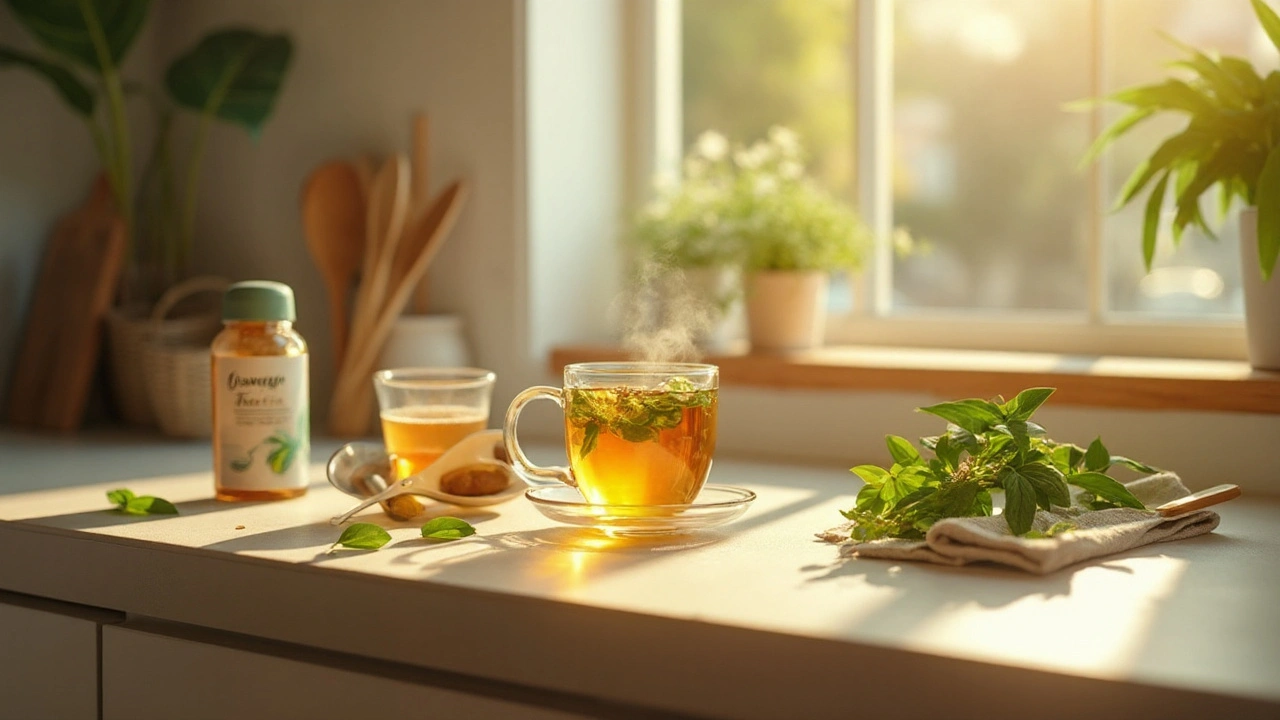Herbal Tea – What It Is and Why You’ll Love It
Herbal tea isn’t really tea at all – it’s a hot water infusion of dried herbs, flowers, roots, or fruits. Because there’s no Camellia sinensis leaf, caffeine is usually low or absent, making it a go‑to drink for relaxation, digestion, or a gentle health boost.
People turn to herbal tea for many reasons: soothing anxiety, easing an upset stomach, supporting immune health, or simply enjoying a tasty, warm drink without the jitters. The magic comes from the plant compounds – antioxidants, flavonoids, and essential oils – that each herb brings to the cup.
Top Herbal Tea Varieties for Health
Red Bush (Rooibos) Tea – Rich in antioxidants like aspalathin, rooibos can help protect cells from damage and support a healthy metabolism. It’s caffeine‑free, so it’s great before bedtime.
Ground Ivy (Glechoma hederacea) – Often used for its mild diuretic and anti‑inflammatory properties. A few teaspoons of dried ground ivy in hot water can help soothe mild respiratory irritation.
Coleus (Coleus forskohlii) – Known for supporting healthy blood pressure and weight management. When brewed as a tea, it delivers forskolin, a compound that may aid fat metabolism.
Skullcap – A calming herb that many use to ease stress and promote better sleep. A simple skullcap tea before lights‑out can reduce nighttime restlessness.
Jasmine – More than a fragrant flower, jasmine tea is celebrated for its mood‑lifting aroma and mild antioxidant boost. Steeping dried jasmine blossoms creates a soothing, lightly sweet drink.
How to Brew the Perfect Cup
Start with fresh, filtered water. Bring it to a gentle boil (around 200 °F or 93 °C) – you don’t need a rolling boil like you would for black tea.
Measure about one teaspoon of dried herbs per eight ounces of water. If you like a stronger flavor, add a bit more, but remember some herbs can get bitter if over‑extracted.
Steep for 5–7 minutes. Most herbal blends benefit from a longer steep to release their beneficial compounds. Cover the cup while steeping to keep the heat in.
After steeping, strain the herbs and enjoy. Sweeten with honey or a splash of lemon if you like, but most herbal teas taste great on their own.
Safety tip: not every herb is safe for everyone. Pregnant women should avoid certain herbs like sage or large amounts of licorice root. If you’re on medication, check for possible interactions – for example, skullcap can enhance the effects of sedatives.
When buying herbal tea, look for products that list the scientific name of the plant and indicate a reputable source. Supplements like Red Bush Tea capsules or Ground Ivy tablets follow the same quality rules; choose brands that provide third‑party testing.
Whether you’re sipping a calming skullcap blend before bed or a bold rooibos cup in the morning, herbal tea offers a simple way to add plant‑based benefits to your day. Experiment with flavors, note how you feel, and soon you’ll have a routine that feels as good as it tastes.

- Sep, 17 2025
- Comments 9